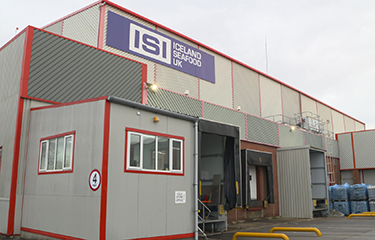Iceland Seafood International (ISI) has agreed to sell 100 percent of its share capital in its U.K. subsidiary to Danish value-added producer Espersen.
In a statement, ISI CEO Bjarni Ármannsson said Espersen had finalized its due diligence process and that transaction documents were nearing completion. According to the agreement, the total sales price was just GBP 1,000 (USD 1,271, EUR 1,170). The Reykjavik, Iceland-headquartered company has been trying to unload its U.K. assets since late 2022 after enduring significant losses for years.
“After four challenging years in the U.K., we have decided to divest the IS U.K. business with a substantial loss. We are confident that this is the right decision for Iceland Seafood as a business,” Ármannsson said. “This investment has been a great cost for the company and its shareholders. It’s been a very tough market during these years, and we have tried with immense effort to turn this around without success.”
The deal will see Esperson lease the property, machinery, and equipment from ISI, with ownership of the machinery transferring at the end of the lease period, and Esperson having an option to buy the property at that time as well.
“I’m confident that the interests of our employees and customers are well served within Espersen and I wish Espersen all the best in this market. And I believe they can use the assets better than we have been able due to their strong position in the UK value-added seafood market.”
ISI said the negative impact of running its U.K. division amounted to an estimated GBP 15 million (USD 19.1 million, EUR 17.6 million) thus far in 2023 alone. This amount includes the impairment of fixed assets of GBP 7.1 million (USD 9 million, EUR 8.3 million), GBP 1.32 million (USD 1.7 million, EUR 1.5 million) of inventory write-offs, and a sales loss of share capital of GBP 300,000 (USD 381,000, EUR 351,000).
ISI’s total assets will be reduced by EUR 22 million (USD 20.3 million) following the consummation of the transaction, but its equity ratio will rise to 27 to 28 percent.
In its H1 2023 results, reported 30 August, the company reported its sales in the first half of 2023 increased 7 percent year over year to reach EUR 222.3 million (USD 241.5 million), but high raw material costs coupled with falling market prices and demand negatively affected the group’s results for the period, particularly in the second quarter.
For the six months that ended 30 June, 2023, ISI reported a normalized loss before tax (LBT) of EUR 800,000 (USD 869,000), a downturn of EUR 4.2 million (USD 4.6 million) compared to the same period last year. Its bottom-line losses stood at EUR 15.3 million (USD 16.6 million), a much steeper drop into the red than its losses of EUR 2.9 million (USD 3.1 million) in H1 2022.
Ármannsson said Q2 2023 had been another period impacted by high input costs, especially for salmon, with continued low prices for whitefish and shellfish. He said that salmon prices also dropped in the period, following usual seasonal production trends.
“All this amplifies the reduced demand at high prices among European consumers, who have been heavily impacted by worsened economic conditions, [such as] still relatively high inflation levels, volatile input factors, and significantly higher financial costs,” Ármannsson said.
ISI’s Argentinian operations didn’t contribute much to the group’s profitability, as was the case in Q1 2023.
“With adjustments in our inventories, we are loss-making and have reduced our outlook bracket for the year significantly,” he said.
For 2023 as a whole, ISI is forecasting a profit before tax range of ...
Photo courtesy of Iceland Seafood International






Share